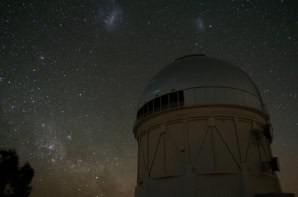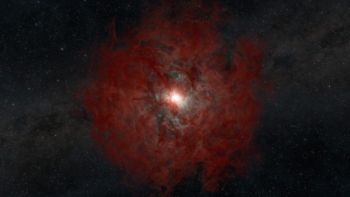Ever since two teams of astronomers announced in 1998 that the expansion of the universe appeared to accelerating with time, other teams of astronomers have been double-checking their conclusions with data from other sources. Although some astronomers still have doubts about the accelerating universe, evidence in its favour continues to grow. The latest comes from studies of the deviation of galaxy velocities from a smooth universal expansion (I Zehavi and A Dekel 1999 Nature 401 252).
The first evidence for the accelerating universe came from observations of distant supernovae. However, the data were also consistent with an open universe – a universe that would expand forever because the total energy density was less than the so-called critical density – with a low mass density and no cosmological constant. The energy density of the universe is composed of matter (both ordinary visible matter and invisible or “dark” matter) and the energy density of the vacuum. The size of the latter, which is sometimes called quintessence or “dark energy”, defines the cosmological constant. This constant was first introduced by Einstein to explain why the universe did not appear to be expanding. Hubble later showed that the universe was expanding, causing Einstein to call it his “biggest blunder”.
Now Idit Zehavi of the Hebrew University in Jerusalem and Avishai Dekel of Fermilab in the US have studied the “peculiar” velocities of over 4000 galaxies on scales of about 300 million light years. These peculiar velocities are due to variations in the mass distribution of the universe which either slow down or increase the expansion due to the big bang. Zehavi and Dekel find that their data and the supernova data favour an almost flat universe in which the mass density and the cosmological constant are comparable. However, they add that “this type of universe seems to require a degree of fine tuning of the initial conditions that is in apparent conflict with ‘common wisdom'”. All of which means that the accelerating universe still presents lots of challenges to astronomers.



